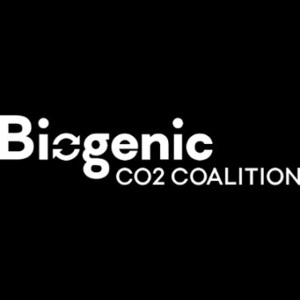Biogenic CO2 Coalition asks EPA to reconsider delay in rulemaking

May 27, 2020
BY Biogenic CO2 Coalition
With Americans struggling across the country to restart the economy during the COVID-19 crisis, the Biogenic CO2 Coalition responded to U.S. EPA Administrator Andrew Wheeler’s testimony on May 20 before the Senate Environment & Public Works Committee. During his testimony, Administrator Wheeler stated that the agency plans to wait another year or more to clarify the de minimis character of biogenic carbon emissions from the processing of annual agricultural crops. For over a decade, this regulatory glitch has been hurting farmers and agribusinesses, severely limiting advancements in the bioeconomy.
The Biogenic CO2 Coalition is a group of leading agricultural organizations fighting for the fair, science-based treatment of annual farm crops by the EPA in order to grow the American bioeconomy, create jobs, and boost rural America. Today, the Coalition released a video highlighting the need for such rulemaking: https://bit.ly/3d361Gu.
The EPA is expected to issue a new rulemaking soon clarifying that natural (i.e., biogenic) carbon dioxide from the burning of woody biomass does not contribute to excess greenhouse gases in the atmosphere. During Wheeler’s testimony before the Senate Environment & Public Works Committee, Sen. Mike Braun, R-Ind., asked when EPA would pursue a new biogenic CO2 standard for annual crops, citing a recent letter to Wheeler from 21 leading climate scientists urging the EPA to include agricultural crops under the biogenic CO2 rulemaking, calling it a regulatory burden “without scientific justification.” See Inside EPA. Wheeler replied that the agency plans to work on a new biogenic standard for annual crops in approximately a year.
Advertisement
Advertisement
During Wednesday’s hearing, Sen. Joni Ernst, R-Iowa, observed that the COVID-19 pandemic has resulted in countless “jobs lost and lives upended across Iowa and throughout rural America.” The Coalition is supportive of President Trump’s recent Executive Order on Regulatory Relief to Support Economic Recovery, and hopes this action will spur EPA into action on the issue of biogenic carbon emissions from the processing of annual agricultural crops.
“For over three years, EPA officials have told us they are going to issue this common sense clarification. EPA’s response seems to ignore President Trump’s call for deregulatory actions to spur investment and job creation. CRA is hopeful that EPA will remove this roadblock to growth in rural America,” said John Bode, president and CEO of the Corn Refiners Association. “By simply clarifying the de minimis character of biogenic carbon emissions from the processing of annual agricultural crops, the EPA can enable billions of dollars of investments into rural economies, robust job creation, and allow America to compete in the international marketplace for renewable products. The time for action is now.”
Advertisement
Advertisement
“It is well past time for EPA to undertake rulemaking on biogenic carbon emissions from annual agricultural crops, which now more than ever can serve as a boon to rural communities as they seek to recover from the COVID-19 crisis,” said Jessica Bowman, executive director of the Plant Based Products Council. “It is critical that EPA move quickly to pursue this science-based policy in order to allow for the development of the U.S. bioeconomy, a sector in which we are quickly falling behind international competition.”
Braun and Ernst were among 16 Senators from both parties who sent a bipartisan letter to the EPA last year calling on the agency to provide clarity on the regulatory treatment of biogenic carbon emissions produced from feedstocks such as corn and soybeans. This letter echoed earlier calls by five governors who wrote their own letter to the EPA urging action on this issue.
Related Stories
President Trump on July 4 signed the “One Big Beautiful Bill Act.” The legislation extends and updates the 45Z credit and revives a tax credit benefiting small biodiesel producers but repeals several other bioenergy-related tax incentives.
CARB on June 27 announced amendments to the state’s LCFS regulations will take effect beginning on July 1. The amended regulations were approved by the agency in November 2024, but implementation was delayed due to regulatory clarity issues.
The USDA’s National Agricultural Statistics Service on June 30 released its annual Acreage report, estimating that 83.4 million acres of soybeans have been planted in the U.S. this year, down 4% when compared to 2024.
SAF Magazine and the Commercial Aviation Alternative Fuels Initiative announced the preliminary agenda for the North American SAF Conference and Expo, being held Sept. 22-24 at the Minneapolis Convention Center in Minneapolis, Minnesota.
Saipem has been awarded an EPC contract by Enilive for the expansion of the company’s biorefinery in Porto Marghera, near Venice. The project will boost total nameplate capacity and enable the production of SAF.
Upcoming Events










